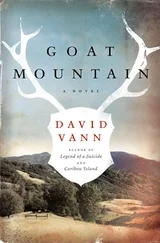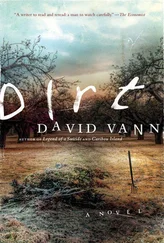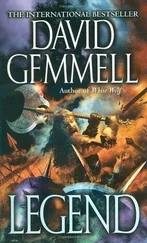David Vann - Legend of a Suicide
Здесь есть возможность читать онлайн «David Vann - Legend of a Suicide» весь текст электронной книги совершенно бесплатно (целиком полную версию без сокращений). В некоторых случаях можно слушать аудио, скачать через торрент в формате fb2 и присутствует краткое содержание. Год выпуска: 2009, Издательство: Penguin Books Ltd, Жанр: Современная проза, на английском языке. Описание произведения, (предисловие) а так же отзывы посетителей доступны на портале библиотеки ЛибКат.
- Название:Legend of a Suicide
- Автор:
- Издательство:Penguin Books Ltd
- Жанр:
- Год:2009
- ISBN:нет данных
- Рейтинг книги:3 / 5. Голосов: 1
-
Избранное:Добавить в избранное
- Отзывы:
-
Ваша оценка:
- 60
- 1
- 2
- 3
- 4
- 5
Legend of a Suicide: краткое содержание, описание и аннотация
Предлагаем к чтению аннотацию, описание, краткое содержание или предисловие (зависит от того, что написал сам автор книги «Legend of a Suicide»). Если вы не нашли необходимую информацию о книге — напишите в комментариях, мы постараемся отыскать её.
follows Roy Fenn from his birth on an island at the edge of the Bering Sea to his return thirty years later to confront the turbulent emotions and complex legacy of his father's suicide.
Legend of a Suicide — читать онлайн бесплатно полную книгу (весь текст) целиком
Ниже представлен текст книги, разбитый по страницам. Система сохранения места последней прочитанной страницы, позволяет с удобством читать онлайн бесплатно книгу «Legend of a Suicide», без необходимости каждый раз заново искать на чём Вы остановились. Поставьте закладку, и сможете в любой момент перейти на страницу, на которой закончили чтение.
Интервал:
Закладка:
On the phone with Gloria, I didn’t use my last name. I wondered whether she knew, but there were no indications either way. The conversation was cordial and short and told me nothing, really, except that she sounded like she was from Boston, not the loud Bostonian dialect but the classier kind, upper-crust, not that this meant anything in particular. I wondered for the hundredth time why I was doing all this, why I was here in Ketchikan. After the initial return and rush of belonging, I had felt only out of place. The divorce and my father’s suicide seemed to exist in another world.
I looked all around my house that night, feeling a little crazy, I think, studied the wood and even the cracks in the linoleum. Part of the mountainside had been dug away to accommodate. Rock had been blasted. The wood was old and had perhaps never been fully dry, but I was convinced it would remain forever. The stains on the walls, too, the fierce green linoleum, the teapot with its inward formations of minerals white, red, and other, as well as the windows that warped what was looked at — all of these would resist wearing away, would remain for as long as the house could be called a house, and longer.
Late night, I wandered. At the gates of the hatchery, I spun the lock, slipped inside. I took hundreds of fingerlings by net, dumped handfuls in my pockets, walked along cliffs above the roadway, bare rock cut in grooves, and held out the fish one by one in an open palm. The miniature salmon leaped each of their own accord, a tail flash into the night, glint of silver, sixty feet of twisting, and an inaudible slap to the pavement below. Waiting, then. For water, for some new rule, new possibility, that could make pavement not pavement, air not air, a fall not a fall.
I made each fish do this, waited patiently for each to send itself, all the time muttering obscenities: “Walk the plank, matey. Time to sleep with the fish.”
I watched the last one vanish, listened for the tiny slap, heard nothing. The mist was orange from streetlight. The air cold. I took off my coat, my shirt, folded them and placed them on a stump. I removed my shoes, pants, underwear, watch, and put my shoes back on. I double-knotted them. I would run through the forest until I was exhausted and could sleep; perhaps even as I ripped through ferns and over the rotting logs invisible now beneath the false second rain-forest floor I would have some kind of vision. So I set off running. But before long, I only felt tired and stopped and turned around and walked slowly back. I had no faith in that kind of thing anymore, I realized. It had worked in high school, a few times even in college, but it seemed ineffectual now. So I put my clothes back on, descended past rubble and wire, concrete, brush, and stood over the wide-flung fingerlings to twist each delicately under my heel.
At work the next day, my boss, a young biologist whose eyes were not quite in alignment, so that I could never be sure whether or not I had been seen, asked me to write a letter to the Ketchikan Daily News and to post flyers asking for information leading to arrest. I suggested a reward of dinner for two at the Fisherman’s Grotto, but my boss didn’t think that was funny.
“I don’t think you understand,” he said, scratching at one of his sideburns. “If this asshole keeps this up, and we don’t catch him, you and me are out a job.”
“Okay,” I said. “I’m your man. I’m the one. I’ll have the letter and flyers ready by the end of the day.”
So I wrote a short press release, included the fact that the theft had probably occurred at night, asked for vigilance, suggested the ever-expanding threat crimes like this posed to us all, and delivered the release to the newspaper. I made flyers with a close-up photo of fingerlings schooling, a shot with rings like a peacock’s fan, difficult to recognize but startling in its way. Under this, I printed, in bold letters, missing, and beneath this the details of the crime and numbers to call. I wrote that they had been netted at night and taken away for unknown purposes. I asked, “Is your neighborhood known to you?”
Bill and Gloria arrived in the Monza and I swung my rickety door wide. I had made everything inside as cozy as possible, despite the fact that Gloria was the woman my father had cheated with. I had baked sweet potatoes and lit candles, tuned the radio to the softer of the two available stations, beer-battered fresh halibut. I was determined to have a good time and to make Bill and Gloria have a good time, too.
Gloria was taller than Bill. Younger, also — early fifties, perhaps. Her hair was still mostly blond. “Hello,” she said. “It’s nice to meet you.”
I muttered something inane, then moved on to what I really wanted to know. “You’re not from here originally, are you? You’re from the East Coast, right, somewhere in New En gland?”
“Boston,” she said.
“Boston,” I repeated. “Well,” I said, “I have food. And would you like something to drink?”
“Howdy,” Bill said, and shook my hand. He was more awkward around his wife.
“A beer?” I asked.
“Sure.”
I could not believe this was the receptionist my father had slept with. I had always imagined her with a wide smile in red lipstick, a brassy, obnoxious voice, and no brain. This was a child’s conception, of course, built from the feel of my mother’s attacks on my father more than their content, but still it had persisted. Even the conversation over the phone had somehow dispelled nothing. I was embarrassed.
“It’s getting colder out there,” Bill said from the couch. “It’ll be an early one this year, looks like.”
“Yeah,” I said. “I heard them talking about that on the radio. That and the decline in tourism this year seem to be about all I’ve heard about.”
“That’s true, you know,” Gloria said. “And agencies everywhere are suffering. At the library we’ve had to trim our hours and staff and reduce or even eliminate many of our services. You can’t call us with reference questions anymore, for instance. And there will be more cuts next year.”
“You work at the library?” I asked, a doubly pointless question since I already knew the answer from trying to track her down when I first arrived in Ketchikan.
“Yes,” she said.
“In Lake County, California, where my grandmother still lives,” I said, to cover myself, “they don’t even have a public library now. Not a single branch in the whole county. They’ve all closed down. And a few of the elementary schools, too.”
I joined Gloria and Bill in the tiny living/dining room off the kitchen. The table was along one wall of this room, the couch along the other. I sat in a chair with its back touching the table.
“I don’t know,” Bill said. “It doesn’t seem to me we need to give everyone a handout. I know that view will be unpopular with my wife, but I just have to say, if someone’s going to make it in this country, they’re going to make it, that’s all.”
Gloria scooted closer to her husband on the couch and took his hand in hers. “I’d prefer not to talk about Amway tonight, honey, if we could. I want to hear what Roy’s up to.”
“Oh,” I said. It was hard to hear her voice. “That’s fine. I haven’t been doing much of anything.” I didn’t know what to do about Bill’s conversational minefield. And I knew I would have to say something stupid now to try to smooth things over. “My uncle used to sell Amway,” I said.
“It’s not such a bad organization, really,” Bill said.
“Yeah,” I said. “I used to listen to the tapes when I’d go goose hunting with him up to Modoc. My uncle and this friend of his named Big Al. They kept the windows up and shouted a lot — my uncle was from Nebraska — and every once in a while, Big Al would turn to me and hold out his finger and…you know, I probably shouldn’t continue with this. I’m sorry.”
Читать дальшеИнтервал:
Закладка:
Похожие книги на «Legend of a Suicide»
Представляем Вашему вниманию похожие книги на «Legend of a Suicide» списком для выбора. Мы отобрали схожую по названию и смыслу литературу в надежде предоставить читателям больше вариантов отыскать новые, интересные, ещё непрочитанные произведения.
Обсуждение, отзывы о книге «Legend of a Suicide» и просто собственные мнения читателей. Оставьте ваши комментарии, напишите, что Вы думаете о произведении, его смысле или главных героях. Укажите что конкретно понравилось, а что нет, и почему Вы так считаете.












